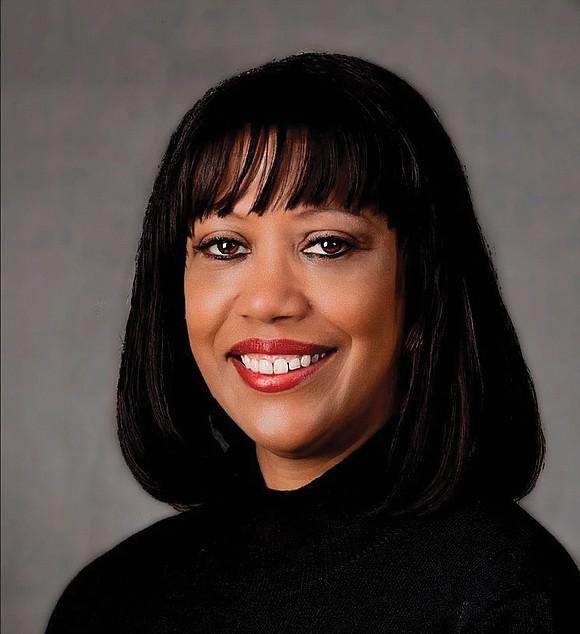Concerns raised over NAACP official's close ties to state political party
Jeremy M. Lazarus | 12/13/2019, 6 a.m.
Has the Virginia State Conference NAACP crossed into partisan territory by naming the No. 2 officer of the state Democratic Party as its chief lobbyist?
That question was raised after the state NAACP’s executive committee Saturday installed Gaylene Kanoyton to lead the organization’s Political Action Committee.
She has been the state Democratic Party’s first vice chair for nine years. She was not available for comment.
Ms. Kanoyton wears multiple hats in the NAACP, but her connection with the political party is raising concern for NAACP members who are worried that the appointment will damage the group’s ability to work with Republicans in the General Assembly, as well as the incoming Democratic majority.
Robert N. Barnette Jr., state NAACP president, dismissed such concerns.
“Anyone who thinks that doesn’t know Gaylene Kanoyton,” he told the Free Press last Saturday. “She can see both sides of a question.”
But Phillip E. Thompson, past president of the Loudoun County Branch NAACP and former state executive committee member who recently was blocked by national NAACP officials from running for state NAACP vice president, disagrees.
“Yes, the state NAACP has lost any resemblance as an independent political entity. It is now effec- tively an arm of the Virginia Democratic Party,” Mr. Thompson stated in response to a Free Press query following Ms. Kanoyton’s appointment.
“Every person who was publicly critical of (Gov. Ralph) Northam and blackface has been removed from leadership in the state NAACP. This was done purposefully,” he said, by the national NAACP’s representative, Gloria J. Sweet-Love.
Ms. Sweet-Love, a national board member and 23-year Tennessee State NAACP president, has had veto power over all Virginia State Conference NAACP decisions for the past nine months. Ms. Sweet-Love ran the state NAACP election of officers at the November state convention and eliminated Mr. Thompson as a candidate under a policy she imposed that the membership had never been notified of or approved. A complaint about her action has been filed with the national office, but it is expected to be rejected as Ms. Sweet-Love heads the committee that hears such complaints.
Mr. Thompson believes that his outspoken but unsuccessful campaign to seeking Gov. Northam’s resignation following the blackface scandal earlier this year is a main reason for Ms. Sweet-Love’s action. He said he and others whose elections were blocked “were outshining the national NAACP in speaking out about racism.”
Mr. Thompson continued to press for Gov. Northam’s resignation long after others stopped.
Despite the governor’s refusal to step down, the Democratic Party has not suffered. During the November elections, voters swept out Republican majorities in both the House of Delegates and state Senate, putting Democrats in control of the General Assembly as well the executive branch under Gov. Northam for the first time since the mid-1990s.
Ms. Kanoyton has long held dual positions with the NAACP and with the Democratic Party. Along with serving as president of the Hampton Branch NAACP, she previously was chair of the Hampton City Democratic Committee for five years before winning election to the state party post in 2010.
She continues to serve as president of the Hampton Branch NAACP and as a regional vice president of the state NAACP.
Until two years ago, she also served as communications director and executive director of the Virginia Legislative Black Caucus.
Earlier, Ms. Kanoyton confirmed to the Free Press that she orchestrated the effort that led Ms. Sweet-Love to remove the Rev. Kevin Chandler as state NAACP president during the summer and Jesse Frierson, then a state executive committee member, as chair of the state NAACP Political Action Committee.
Ms. Kanoyton confirmed that she filed a complaint after Rev. Chandler allowed Mr. Frierson to organize a “listening tour” around the state to seek public comments about issues the state organization needed to focus on.
Among other things, she objected to Mr. Frierson undertaking the effort in partnership with other groups, including a black anti-abortion organization with Republican ties, without first securing approval of the state executive committee.
Rev. Chandler said before his removal from office that the tour had been approved by the state NAACP executive committee and by Ms. Sweet-Love. Only one tour event was held in Richmond before Mr. Chandler lost his post and the tour was shut down.







